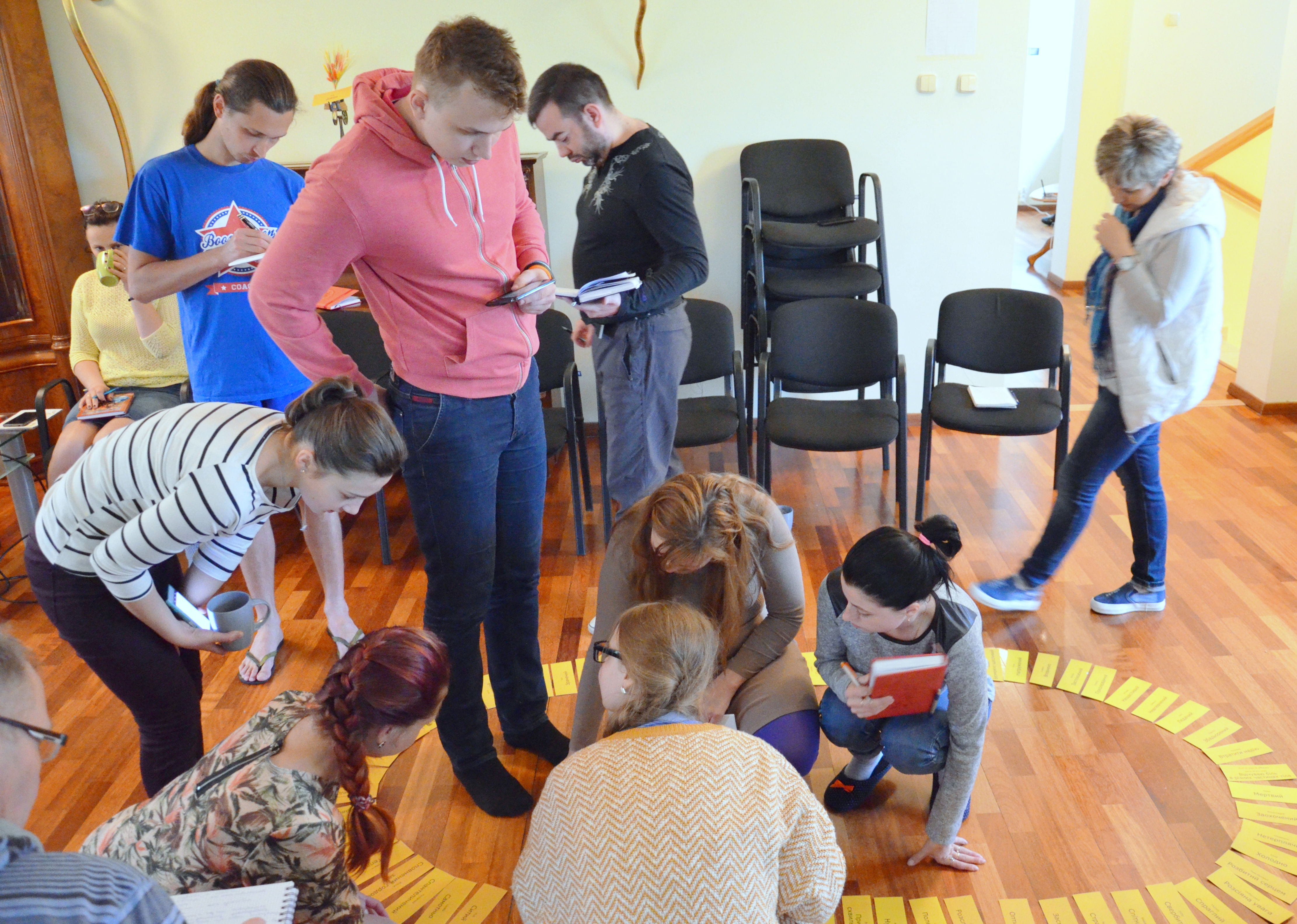There’s a war (in Eritrea)
“Do you know about Eritrea?” someone in the group asks the others, unexpectedly, over dinner. Silence. Fifteen pairs of eyes full of question marks. “It’s a part of Ethiopia that was annexed (sic). So you see, in the same way we don’t know about Eritrea, people abroad don’t know about Ukraine.”
It is true that for many in western Europe, the war that is still simmering – albeit at lowered intensity – in the east of Ukraine seems silent and far away now. In the country itself, though, it is alive and present, subtly impacting all aspects of society as people keep on seeking ways to adjust to the situation.
“We only recently started to use this word, ‘war’,” another participant tells me during the coffee break. “Before, we used to talk about ‘events’ or ‘the situation in the east’…” When I heard this, I remembered the reaction I heard several times during my first visit for PAX to Ukraine, in early 2014. When talking about examples of other countries in conflict, such as the Balkans, I got used to hearing, in a shocked tone of voice, “We aren’t a conflict country!”. Today, more and more Ukrainians admit that they do live in a conflict country, and that something needs to be done about it. And they are doing things.
Living in a project house
In May 2017, the first group of 15 people began in a new project — a series of one-week training sessions in the School of Peace Engineers.
A large house in the suburbs of Kiev has been transformed into a training venue that houses all the participants, trainers, and part of the project staff during the training sessions: eight sessions which amount to 60 days of training over the course of four months. There is a room where the sessions take place: mediation, non-violent communication, dialogue facilitation. There is a dining room, which is where the conversation about Eritrea took place. The participants prepare dinner and breakfast in a small kitchen. We assumed that living in the same house and doing daily household chores together would foster team building while at the same time generating conflict that could serve as practice material for the training. Indeed, it does both.
Over the course of this year and next, at least three groups will go through this process, followed by an extensive period of practicing what they have learned, to become skilled and capable dialogue facilitators and mediators.
Realising a dream
Together with PAX, the founders of the NGO Dignity Space created the project “Culture of Dialogue” because they saw the need for a strong community of facilitators able to address the war in the east and its social consequences over the years to come, without the intervention of foreign experts.
The project also is about greater acceptance of dialogue and listening and working out joint solutions as a way of handling conflict. It is, in the long run, about creating a country, region, and world that is less violent. This is not about choosing the easy or the fast way, as participants soon find out when we take on the first conflict that arises in the group as material to demonstrate and practice: how to deal with someone who understands household duties in a different way than you do? It is an intensive immersion process of ‘learning a new language’ of non-violence, working through one´s own prejudices and hearing the concerns of the other.
And now this is not a dream anymore, a nicely thought-through project on paper, but real hard work for the project team and for the group. Hard work, but also very, very much appreciated, as I notice from the warm “thank you” I receive from the participants when I leave. Especially the fact that I come from abroad and have not forgotten about them, their country and its conflict – in contrast to how people in the group had forgotten about a place like Eritrea.




